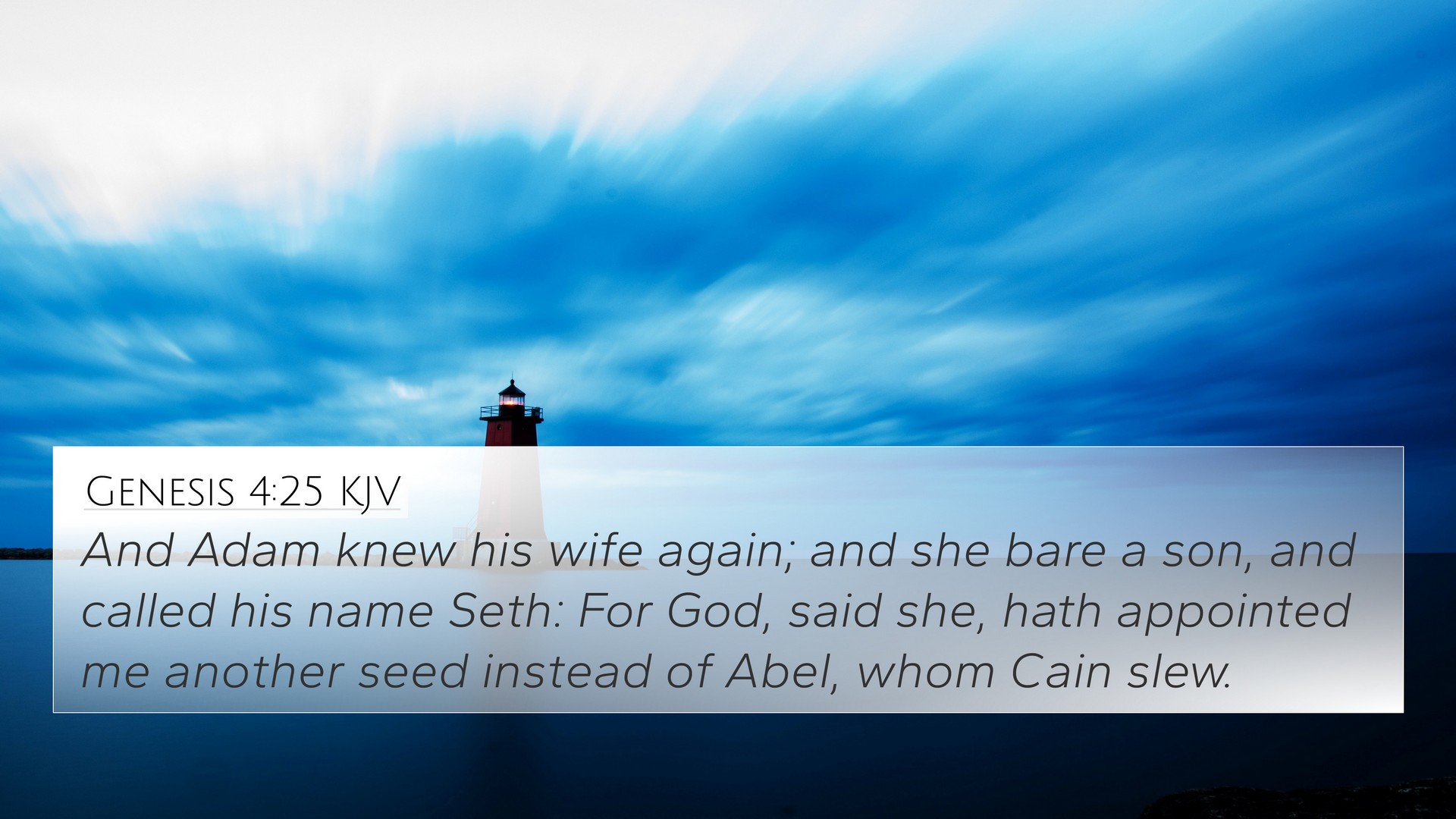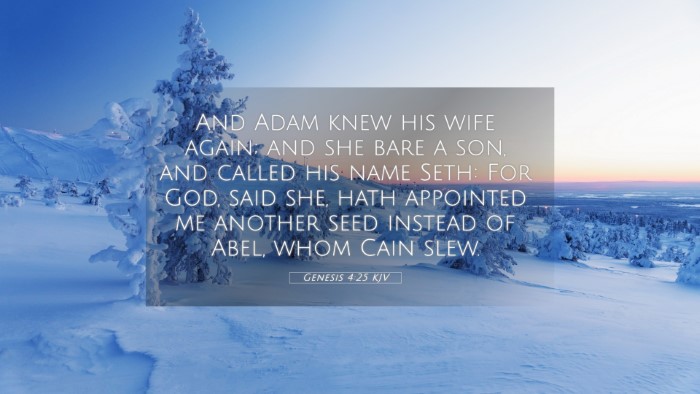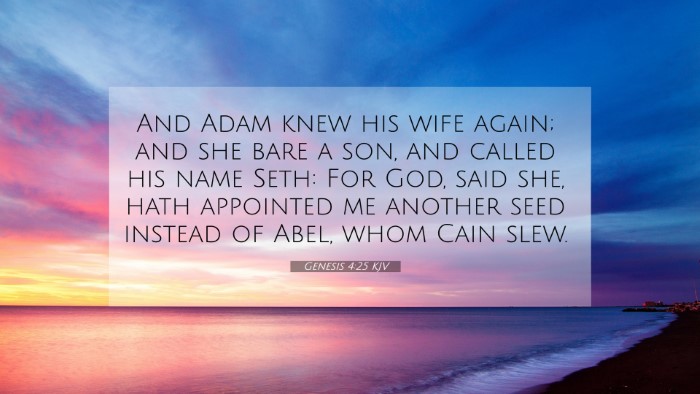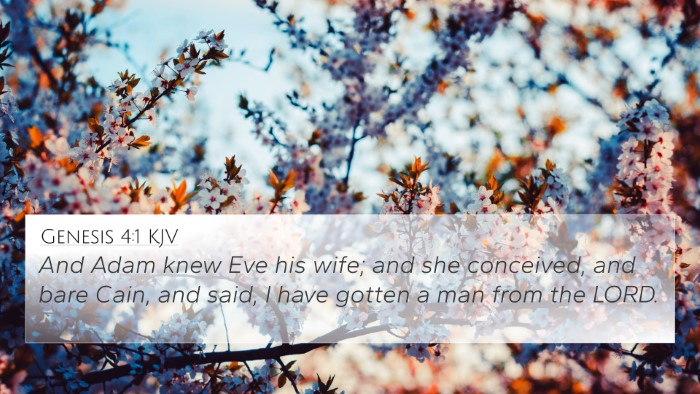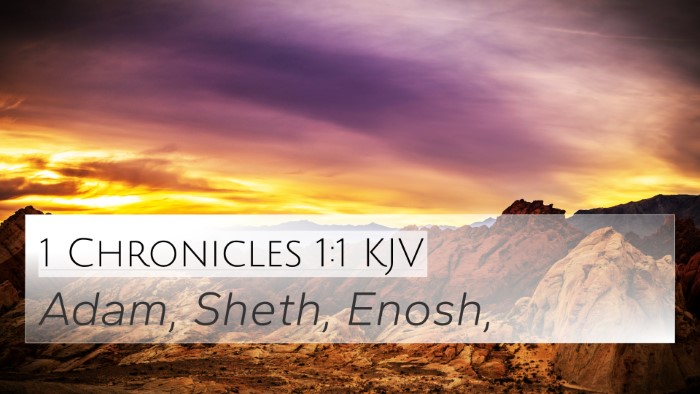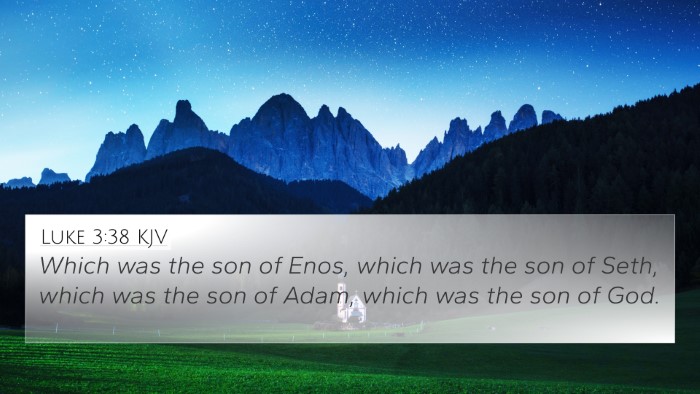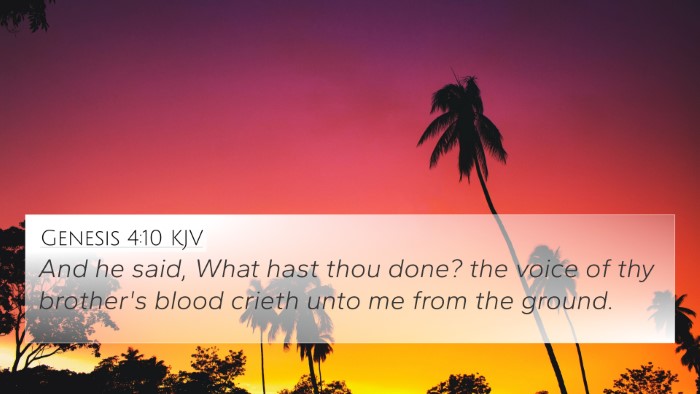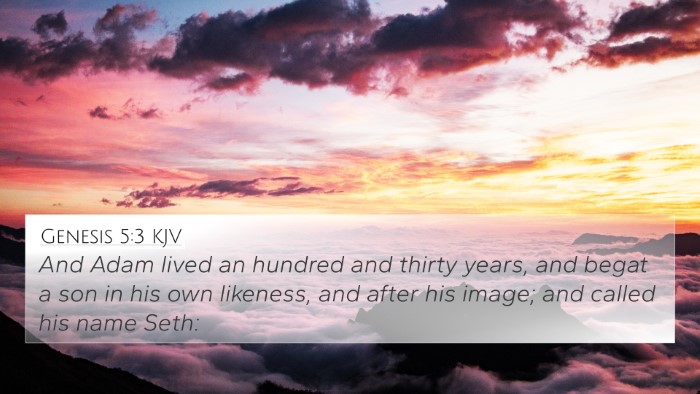Understanding Genesis 4:25
Genesis 4:25 reads: "And Adam knew his wife again, and she bare a son, and called his name Seth: For God, said she, hath appointed me another seed instead of Abel, whom Cain slew."
Summary of the Verse
This verse marks a significant moment in the genealogical narrative of Adam and Eve. After the tragic murder of Abel by his brother Cain, the birth of Seth symbolizes hope and divine providence in the midst of loss. Eve acknowledges God's role in granting her another child, reflecting the themes of redemption and the continuity of life.
Commentary Insights
Matthew Henry's Commentary
Matthew Henry highlights the importance of Seth's birth as a divine provision in the aftermath of Abel's death. He emphasizes that Eve’s declaration about God appointing another seed indicates God's continuing plan for humanity despite sin. The naming of Seth is seen as a testament to the restoration of hope and the lineage through which the righteous seed would eventually lead to the Messiah.
Albert Barnes' Notes
Albert Barnes elaborates on the historical context, noting that Abel’s murder by Cain had severed the lineage of the righteous. The birth of Seth signifies a new beginning and a promise of continuity. Barnes points out the theological implication of God’s sovereignty in appointing a successor to Abel, suggesting that this act is part of a larger redemptive historical narrative that unfolds throughout scripture.
Adam Clarke's Commentary
Adam Clarke focuses on the implications of Eve's statement about God appointing Seth. He interprets this as an acknowledgment of God’s mercy and plan. Clarke also discusses the significance of names in biblical texts and how they often reflect the circumstances of a person’s life. In this case, Seth's name becomes synonymous with hope following tragedy.
Bible Verse Cross-References
- Genesis 3:15: This verse introduces the promise of redemption and the conflict between the serpent's seed and the woman’s seed, directly tying into the theme of divine provision seen in Seth's birth.
- Genesis 5:3: This verse discusses the lineage of Adam through Seth, showing the continuation of the righteous line after Abel's death.
- Luke 3:38: In the genealogy of Jesus, Seth is noted as a direct ancestor, signifying the importance of his role in biblical history.
- Hebrews 11:4: This verse reflects on Abel’s faith, contrasting with Cain’s actions, and emphasizes the ongoing legacy of righteousness through Seth.
- Romans 5:12: This verse explores the concept of sin entering the world through one man (Adam) and hints at the necessity of salvation through another seed, leading to Jesus Christ.
- 1 John 3:12: This verse contrasts the righteousness of Abel with Cain's wickedness, reinforcing the theme of good versus evil in the biblical narrative.
- Psalm 37:28: This Psalm affirms that the Lord loves justice and does not forsake His saints, a theme reflected in God's provision of Seth in the face of injustice in Abel’s death.
Thematic Bible Verse Connections
The narrative around Genesis 4:25 is intertwined with significant themes found throughout Scripture:
- Divine Redemption: Seth is a symbol of God's redemptive work amidst the consequences of sin, paralleling the themes found in the New Testament regarding Christ's redemptive purpose.
- Hope and Continuity: The birth of Seth is a testament to hope in continuity, echoing through the genealogies that lead to Jesus, reminding believers of God's promises.
- Justice and Injustice: The themes of justice are explored through the actions of Cain and the preservation of a righteous lineage through Seth, serving as a reminder for believers to seek justice and righteousness in their own lives.
Tools for Bible Cross-Referencing
For those interested in deeper study, utilizing tools for cross-referencing can greatly enhance understanding:
- Bible Concordance: A tool that helps locate verses and themes throughout the Bible.
- Bible Cross-Reference Guide: Helps find connections between verses, facilitating a deeper understanding of themes.
- Cross-Referenced Themes: Identifying major themes can lead to richer Bible studies.
- Comprehensive Bible Cross-Reference Materials: These resources assist in finding links between various scriptures across both Testaments, improving one's devotional or academic study of the Bible.
Conclusion
Genesis 4:25 serves as a pivotal point in the biblical narrative. Through the insights of various commentaries, we see that Seth’s birth symbolizes hope and continuity within God’s redemptive plan. The cross-references and thematic connections to the larger biblical text provide a rich framework for understanding the significance of this verse. Engaging with the tools for Bible cross-referencing not only enhances personal study but also encourages a wider exploration of scripture.
